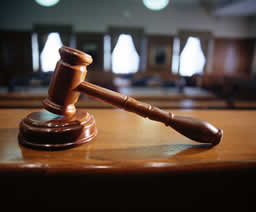Judicial Elections and Speech Restrictions
Free Speech & Election Law Practice Group Teleforum
 Since the Supreme Court's 2002 decision in Republican Party of Minnesota v. White, judicial candidates have had the freedom to discuss their views on "disputed legal or political issues." Many questions remain after the decision, however, about states' ability to restrict the speech of judicial candidates and their supporters. For example, should judges and judicial candidates have the right to announce their party affiliation and appear at party functions? To endorse other candidates? To raise campaign funds personally? And where is the line between an acceptable statement that announces one's views and unacceptable statement that implicitly promises a result in a case the judge might decide in the future? When do a judge's campaign statements -- even if constitutionally protected -- trigger the judge's obligation to recuse? What is the effect of Caperton v. A.T. Massey Coal Co., decided by the Supreme Court in 2009, in which the Court held that independent expenditures by a judicial candidate's supporters can sometimes require the judge to recuse in a case involving those supporters? Featuring: Mr. James Bopp, Jr., of Bopp, Coleson, and Bostrom and the James Madison Center for Free Speech and Prof. Michael R. Dimino, Sr., of Widener University School of Law.
Since the Supreme Court's 2002 decision in Republican Party of Minnesota v. White, judicial candidates have had the freedom to discuss their views on "disputed legal or political issues." Many questions remain after the decision, however, about states' ability to restrict the speech of judicial candidates and their supporters. For example, should judges and judicial candidates have the right to announce their party affiliation and appear at party functions? To endorse other candidates? To raise campaign funds personally? And where is the line between an acceptable statement that announces one's views and unacceptable statement that implicitly promises a result in a case the judge might decide in the future? When do a judge's campaign statements -- even if constitutionally protected -- trigger the judge's obligation to recuse? What is the effect of Caperton v. A.T. Massey Coal Co., decided by the Supreme Court in 2009, in which the Court held that independent expenditures by a judicial candidate's supporters can sometimes require the judge to recuse in a case involving those supporters? Featuring: Mr. James Bopp, Jr., of Bopp, Coleson, and Bostrom and the James Madison Center for Free Speech and Prof. Michael R. Dimino, Sr., of Widener University School of Law.
 Since the Supreme Court's 2002 decision in Republican Party of Minnesota v. White, judicial candidates have had the freedom to discuss their views on "disputed legal or political issues." Many questions remain after the decision, however, about states' ability to restrict the speech of judicial candidates and their supporters. For example, should judges and judicial candidates have the right to announce their party affiliation and appear at party functions? To endorse other candidates? To raise campaign funds personally? And where is the line between an acceptable statement that announces one's views and unacceptable statement that implicitly promises a result in a case the judge might decide in the future? When do a judge's campaign statements -- even if constitutionally protected -- trigger the judge's obligation to recuse? What is the effect of Caperton v. A.T. Massey Coal Co., decided by the Supreme Court in 2009, in which the Court held that independent expenditures by a judicial candidate's supporters can sometimes require the judge to recuse in a case involving those supporters?
Since the Supreme Court's 2002 decision in Republican Party of Minnesota v. White, judicial candidates have had the freedom to discuss their views on "disputed legal or political issues." Many questions remain after the decision, however, about states' ability to restrict the speech of judicial candidates and their supporters. For example, should judges and judicial candidates have the right to announce their party affiliation and appear at party functions? To endorse other candidates? To raise campaign funds personally? And where is the line between an acceptable statement that announces one's views and unacceptable statement that implicitly promises a result in a case the judge might decide in the future? When do a judge's campaign statements -- even if constitutionally protected -- trigger the judge's obligation to recuse? What is the effect of Caperton v. A.T. Massey Coal Co., decided by the Supreme Court in 2009, in which the Court held that independent expenditures by a judicial candidate's supporters can sometimes require the judge to recuse in a case involving those supporters?
Featuring:
- Mr. James Bopp, Jr., Bopp, Coleson, and Bostrom and General Counsel, James Madison Center for Free Speech
- Prof. Michael R. Dimino, Sr., Widener University School of Law
Call begins at 1:00 PM Eastern Time.
Teleforum calls are open to all dues paying members of the Federalist Society. To become a member, sign up here. As a member, you should receive email announcements of upcoming Teleforum calls which contain the conference call phone number. If you are not receiving those email announcements, please contact us at 202-822-8138.

